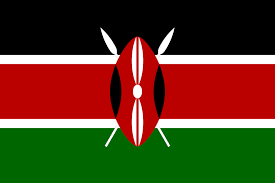
The Data Privacy Act of 2012 (Republic Act No. 10173) in the Philippines is designed to safeguard personal information stored in information and communication systems across both government and private sectors. Key aspects of the law include:
Key Provisions and Principles
The act emphasizes the importance of privacy and the free flow of information, promoting innovation and growth while protecting personal data. It establishes the National Privacy Commission to enforce and oversee the implementation of the law, which includes powers to issue rules, adjudicate complaints, and ensure compliance with international standards of data protection.
Rights of Data Subjects
Data subjects have several rights under this law, including the right to be informed about how their personal information is processed, the right to access, correct, and remove their data, and the right to object to the processing of their information. A noteworthy aspect is the inclusion of a "right to be forgotten," where data subjects can demand the deletion of their personal data under certain conditions.
Obligations of Data Controllers and Processors
Entities that control or process personal data must ensure transparency in their data processing activities, obtain the consent of data subjects (except in specific circumstances outlined by the law), and implement measures to safeguard the collected data. They are also required to maintain a privacy program and respond appropriately to personal data breaches, notifying affected parties and the National Privacy Commission within a prescribed timeframe if the breach involves sensitive personal information and poses a risk to the individuals.
These provisions highlight the comprehensive approach the Philippines has taken to address data privacy and protection, reflecting broader global trends towards ensuring individuals' privacy rights are respected and protected.
Data Controllers and Processors
Data controllers are responsible for ensuring that all data processing operations adhere to the principles set out in the act, such as lawfulness, fairness, and transparency. This includes adopting appropriate security measures to prevent unauthorized access, data breaches, and ensuring the integrity and confidentiality of personal data processed. They are also tasked with implementing data protection policies that articulate clearly the purpose of data collection and processing activities.
Data processors, on the other hand, are not just passive recipients of orders from controllers. They must also actively ensure that the processing activities they undertake comply with the law, including safeguarding the security of data, even in operations where they are not the primary data controllers. For instance, if they are handling data processing on behalf of another company, they still need to follow strict guidelines to protect the data and are directly accountable for breaches.
Enforcement and Penalties
The law is enforced by the National Privacy Commission, which has the authority to issue orders, enforce actions, and impose penalties on entities that violate the provisions. Penalties for non-compliance can be severe, including substantial fines and imprisonment. For example, unauthorized disclosure of sensitive personal information can result in fines of up to two million pesos and imprisonment.
Data controllers are required to notify the National Privacy Commission and affected persons of any personal data breaches within 72 hours of becoming aware of the breach. This prompt notification is crucial for mitigating any potential damage caused by the breach. The commission also has the power to investigate and call for criminal prosecution in severe cases of non-compliance or breaches.
Global Impact and Compliance
Given the extraterritorial nature of the Data Privacy Act, international companies operating in the Philippines or handling data of Philippine residents must comply with this law. This aspect underscores the Philippines' commitment to align with global data protection standards, such as the General Data Protection Regulation (GDPR) of the European Union. This alignment helps facilitate international business and protects the data rights of individuals across borders.
Conclusion
The Data Privacy Act of 2012 of the Philippines is a comprehensive legal framework designed to protect personal information in a digital age. It balances the needs of security and privacy with the demands of modern commerce and communication, ensuring that individuals' data rights are respected and protected while fostering an environment conducive to technological innovation and growth.
If you're concerned about how the Data Privacy Act of 2012 impacts your business, or if you're looking to ensure your company is in full compliance with its provisions, don't hesitate to reach out for professional guidance. Our team can provide comprehensive support in understanding and implementing the required security and privacy protocols to protect your data and adhere to legal standards. Contact us today to schedule a consultation and take proactive steps towards robust data protection.
Remember, safeguarding personal information not only complies with legal requirements but also builds trust with your customers, enhancing your business reputation and security.

 +91 9594449393
+91 9594449393 +1 4847906355
+1 4847906355 +63 9208320598
+63 9208320598 +44 1519470017
+44 1519470017 +84 908370948
+84 908370948 +7 9639173485
+7 9639173485 +62 81808037776
+62 81808037776 +90 5441016383
+90 5441016383 +66 993367171
+66 993367171 +254 725235855
+254 725235855 +256 707194495
+256 707194495 +46 700548490
+46 700548490.jpg)
.jpg)
.jpg)
